Gone would be the term "alien" and in its place is "noncitizen."
Also gone would be the term "alienage," replaced with "noncitizenship."
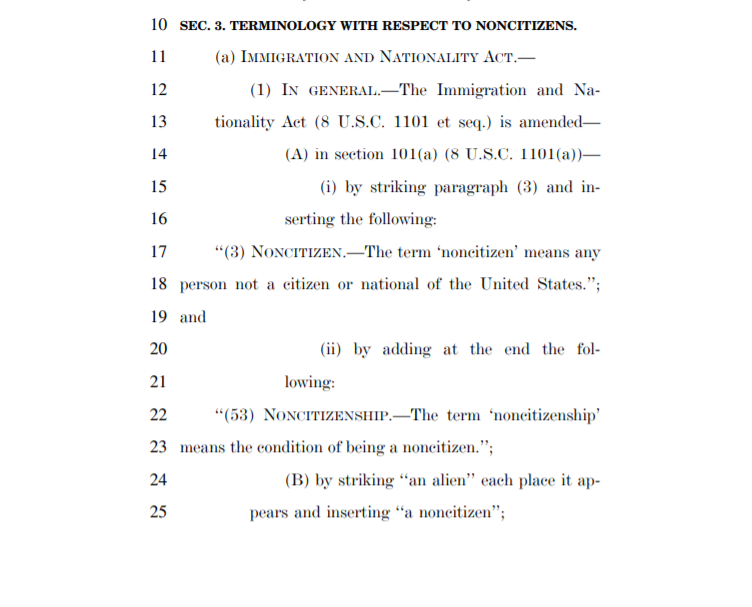
The immigration bill text is out!
— Nicole Narea (@nicolenarea) February 18, 2021
Senate version: https://t.co/aJUmtVW6Ir
House version: https://t.co/JMKjQaDi04
Excuse me while I go at this with a highlighter.

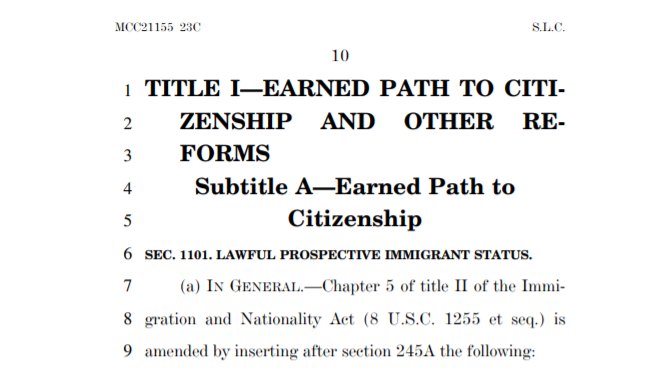
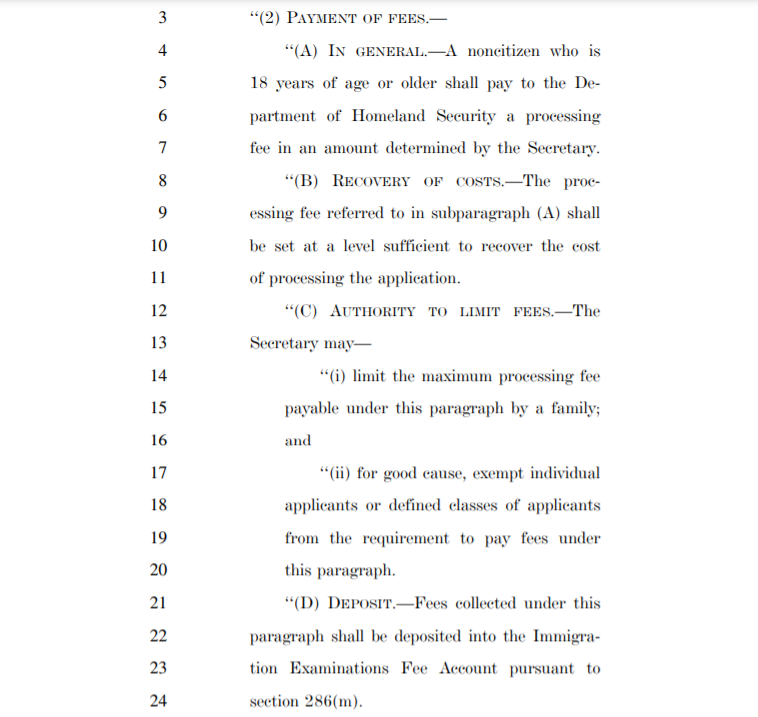
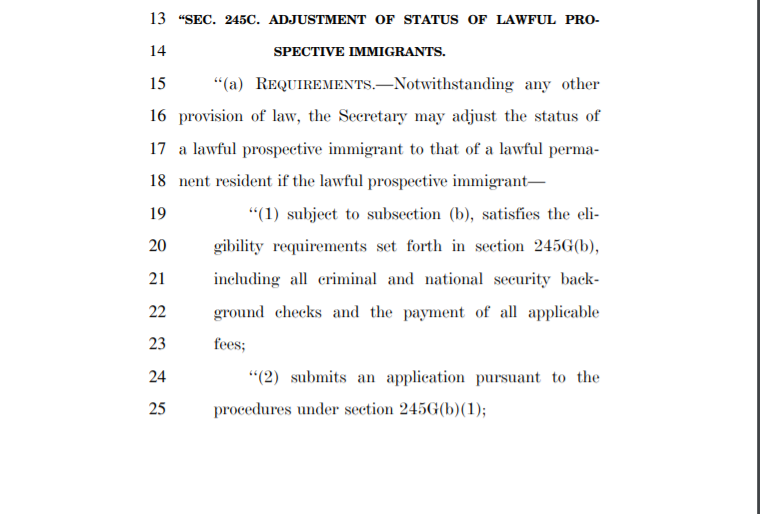
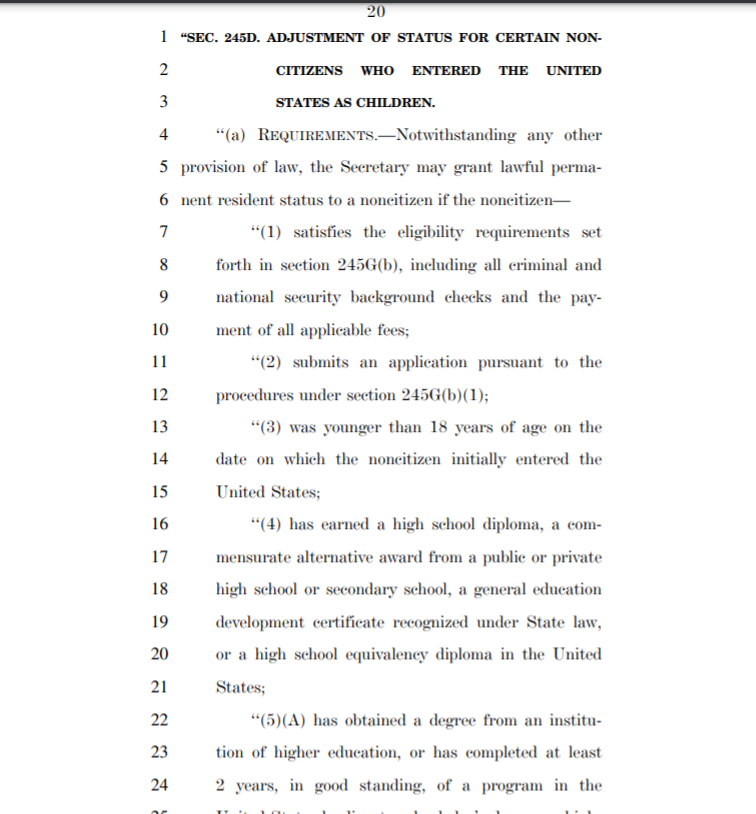









READ @HouseJudiciary new report on The Trump Administration's Family Separation Policy: Trauma, Destruction, and Chaos"
— Philip Wolgin (@pwolgin) October 29, 2020
551 pages (!) https://t.co/7MDT0e9wPX#FamiliesBelongTogether
There is a LOT to like about this bill. I want to highlight some of the proposed changes beyond just legalization, including:
— Aaron Reichlin-Melnick (@ReichlinMelnick) January 20, 2021
- Ending the 3 & 10 year bars
- Curbing the "Muslim ban" authority
- Preventing "aging out" of children on nonimmigrant visas.https://t.co/jkFBIcNJEb
This is a standard order issued following every transition, but today it feels so important because of how many horrific things were in the pipeline.
— Aaron Reichlin-Melnick (@ReichlinMelnick) January 20, 2021
Here's a brief thread about some of the terrible anti-immigration regulations that didn't make it across the finish line.
1/ https://t.co/q0QpfVxPXm
Incredible.\U0001f38a I am overwhelmed with joy that we are finally seeing the end to one of the most cruel and heartless policies of the last four years\u2014one that caused horrific damage to peoples' lives.
— Aaron Reichlin-Melnick (@ReichlinMelnick) January 21, 2021
The first part of the promise was kept. Now #LetThemIn!https://t.co/PZGrbvagaa https://t.co/PMeOxrKJvm
\U0001f38aWe have our first immigration EO and it's the order ending the Muslim Ban/Africa Ban!
— Aaron Reichlin-Melnick (@ReichlinMelnick) January 21, 2021
The Bans "are a stain on our national conscience and are inconsistent with our long history of welcoming people of all faiths and no faith at all."https://t.co/4lh20OCCAY pic.twitter.com/8mW9wuPyzc
\U0001f38aSecond immigration EO! It is short. It establishes that Biden believes that immigration enforcement "requires setting priorities to best serve the national interest."
— Aaron Reichlin-Melnick (@ReichlinMelnick) January 21, 2021
It then revokes Trump's original EO that made all undocumented immigrants a priority.https://t.co/MvaeqPbiyK pic.twitter.com/dpkVZAKOT2
37.90/ Limbaugh was a cruel hate-machine who made a fortune off hurting people. To say "don't speak ill of the dead" is the attitude of abuse enablers.
— Joshua Cypess (@JoshuaCypess) February 18, 2021
If you can't condemn a ghoul who dedicated his life to destroying society, you're part of the problem! https://t.co/ijvG2zDACH
This is how Rush's death should be honored. Let's not speak ill of the dead, let's quote Rush speaking ill of the dead.
— Sane English (@SaneEnglish) February 17, 2021
It's easy to make fun of Rush Limbaugh right now, but it's important to remember that he also brought a lot of people a lot of joy by dying
— Mike Drucker (@MikeDrucker) February 17, 2021
It\u2019s ok\u2014essential, even\u2014to speak the truth about people who caused great harm.
— Rabbi Danya Ruttenberg (@TheRaDR) February 17, 2021
Even after their death.
today i said Jewish culture requires dancing on the graves of those who have wronged us and i picked up like 300 followers LMAO
— Erin Biba (@erinbiba) February 18, 2021
people love Jewish vengeance \U0001f923\U0001f923
wait till they hear about Purim




